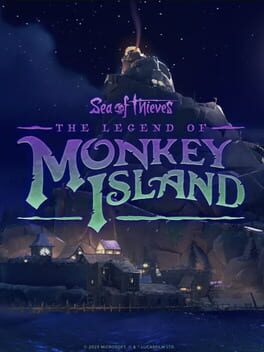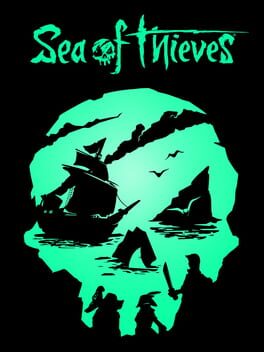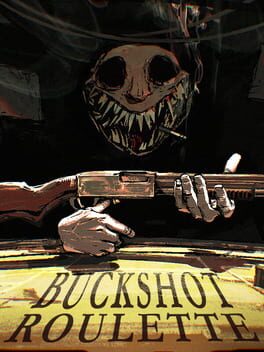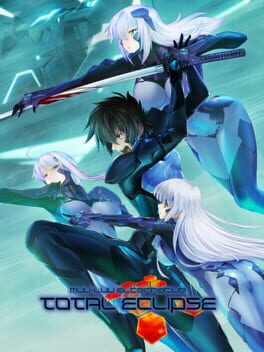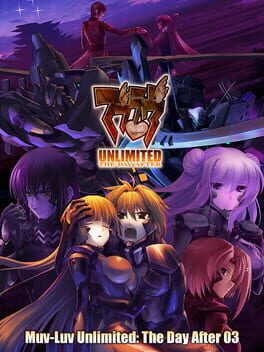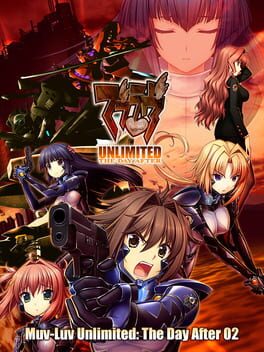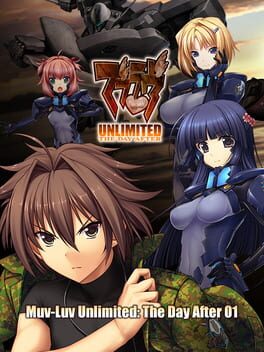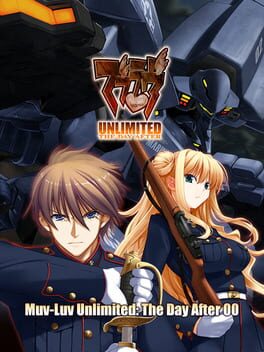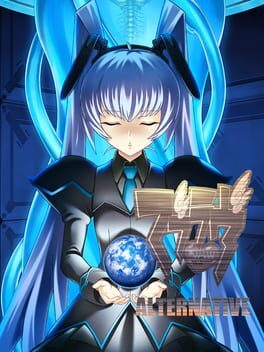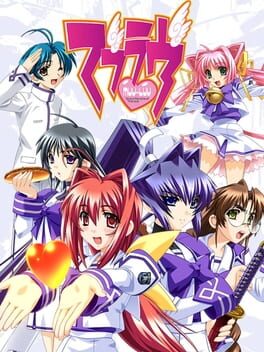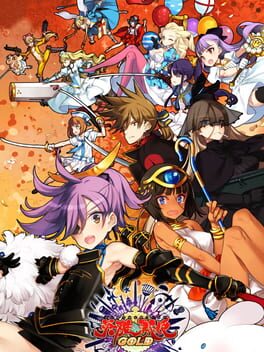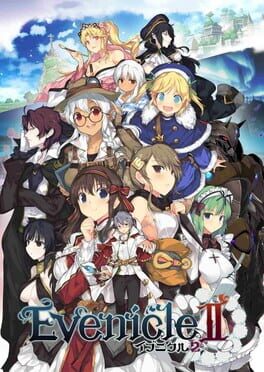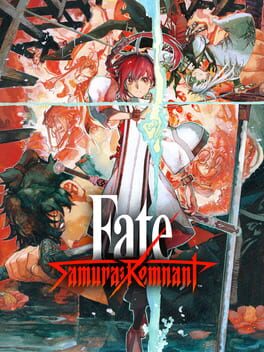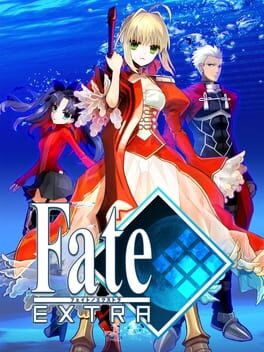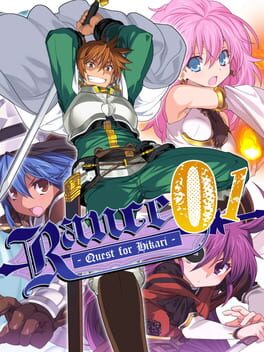Feripe
2018
2023
Yuuya, Yui and Cryska are parallels of the same type of people, however with different nationalities who need to learn to connect with others despite their differences, whether ethnic, personal or moral. Not just let go of the identities imposed on them and start living as human beings with their own individualities, but understand that it is possible for humans to connect and work together despite everything. Instead of pushing our ideas on others, learn and be considerate of others so that in this conflict of ideas we find a path that leads us to mutual understanding. The purpose of TE is to demonstrate that despite all our differences, human beings can work together despite all obstacles.
After having to deal with the production and writing of TDA after Alternative, I am immensely grateful to see Yoshimune back on the series as a writer and dedicating a lot of time to production, direction, etc. Its amazing. Look, MLA is WAY better than TE, especially cuz it continues to be Yoshimune's life's work, so some may find it strange that I give the same score to both. But I have to follow my heart , this VN is spectacular and even though the level of emotion isn't the same as MLA, it still manages to play with your heart.
In general MLA > TE > TDA = Extra/Unlimited
After having to deal with the production and writing of TDA after Alternative, I am immensely grateful to see Yoshimune back on the series as a writer and dedicating a lot of time to production, direction, etc. Its amazing. Look, MLA is WAY better than TE, especially cuz it continues to be Yoshimune's life's work, so some may find it strange that I give the same score to both. But I have to follow my heart , this VN is spectacular and even though the level of emotion isn't the same as MLA, it still manages to play with your heart.
In general MLA > TE > TDA = Extra/Unlimited
TDA is not written by Kouki Yoshimune, so it is normal to feel a difference within the composition of the work to the original franchise, this is certainly to be expected. Yoshimune has a unique storytelling power that Wei cannot convey to the same extent. Saying that he is inferior to Yoshimune seems like I'm dissing the author, but I believe he is a good writer, but in retrospect, Yoshimune has a unique characteristic of his own. composition of the plot where we can easily identify its writing and a strength with words that can capture us and touch us intimately. I believe that many moments of TDA would have been better if it were a composition by Yoshimune, especially the dramatic moments of the characters, Tatsunami and Yuzuka's past and so on.
Perhaps because Wei had to carry Yoshimune's legacy and work within someone else's literary world influenced his writing, after all he had to build the story within the Muv-Luv standards determined by Yoshimune. I'm not going to go into technical aspects, because I didn't come to read Muv-Luv determined to address these issues, but what is clear as day to me is the way that Wei builds the relationship between the characters and the world of Muv-Luv :TDA in relation to Muv-Luv and this certainly defines one of the differences in the writing between the two authors.
While Yoshimune writes the characters' innermost lives, their daily lives and from them we see the world being built, relationships being formed, etc. Wei writes his scenario with the world taking precedence over the characters, that is, the characters' relationships and the construction of the world itself, geopolitics, are constructed by the world itself and not by the characters. The world delimits the characters and their relationships and after that it is up to the character, whereas during Yoshimune's writing it was the characters who ended up delimiting the world - I know this may seem a little confusing, but see it as a question of the way that the world is presented within TDA.
Don't we see TDA's world being wider than Alternative's even though Alternative has much more time to explore its own scene? Then. Overall, this discrepancy between Wei and Yoshimune's writing is a positive force for TDA in a sense, since the world taking precedence over the characters, determining their relationships, demonstrates human inferiority in relation to the vast world to which she is subjected and again a distancing from the world and a form of nihilism, which is rectified within the work with humanity closer to extinction than ever. This feeling that the world escapes us, eludes us, is precisely what TDA wants to bring, because like Alternative, our mission is to recover this world from antagonistic forces.
And now notice that even though Yoshimune and Wei's writings are different they arrive at exactly the same central point. Yoshimune, when playing the characters to explore the world and see everything only through his single vision, as we delve deeper into the world we come across our own inferiority in relation to it. Wei, by placing the world on the characters, forcing the world to determine the characters' relationships, makes us face again our inferiority in relation to the world. The way Wei plays the world over the characters is the very geopolitics that TDA has an explicit and abundant focus on compared to any other work by Yoshimune. Takeru exploring the world and creating his relationships comes across political relationships that, in Unlimited, are almost non-existent because he is just in training. In TDA, political forces have been present at all times since the work began, they are so strong that they cannot be ignored and are as threatening as any BETA.
(Oh, just a side note, is that TDA has a habit of straying from the Protagonist's POV from time to time, which is obviously a characteristic of Wei's narrative. However, Yoshimune uses all of his narration and world-building only through Takeru's vision, with except for some moments like the final stretch of Alternative when we see the POV of all the heroines)
TDA itself reflects a lot of what was already being said by Yuuhi in Alternative:
"When different governments and organizations take varying positions on the same issue. It's because they have differing ideals and beliefs."
What becomes even more evident is the power struggle that takes place within Japan with Ikaruga and 'Yuuhi', where the Shogun herself does not say that Ikaruga has no reasons or motives for doing what he does, in fact she defends him from Tatsunami saying that he is It's wrong to try to see everything as black and white.
The Day After is a good addition to the Muv-Luv universe even if it doesn't follow the canonical line after Alternative, despite not having all of Yoshimune's mastery within the narrative nor having production ahead of its time that ML and MLA had, TDA is a great Sci-fi story just like the main franchise.
And I can't help but be particularly looking forward to Resonative since the wider world of Muv-Luv comes into the hands of Yoshimune, which for me is a great indication that the production will be as formidable as that of its predecessors and we will finally have a work of the franchise capable of rivaling MLA.
Perhaps because Wei had to carry Yoshimune's legacy and work within someone else's literary world influenced his writing, after all he had to build the story within the Muv-Luv standards determined by Yoshimune. I'm not going to go into technical aspects, because I didn't come to read Muv-Luv determined to address these issues, but what is clear as day to me is the way that Wei builds the relationship between the characters and the world of Muv-Luv :TDA in relation to Muv-Luv and this certainly defines one of the differences in the writing between the two authors.
While Yoshimune writes the characters' innermost lives, their daily lives and from them we see the world being built, relationships being formed, etc. Wei writes his scenario with the world taking precedence over the characters, that is, the characters' relationships and the construction of the world itself, geopolitics, are constructed by the world itself and not by the characters. The world delimits the characters and their relationships and after that it is up to the character, whereas during Yoshimune's writing it was the characters who ended up delimiting the world - I know this may seem a little confusing, but see it as a question of the way that the world is presented within TDA.
Don't we see TDA's world being wider than Alternative's even though Alternative has much more time to explore its own scene? Then. Overall, this discrepancy between Wei and Yoshimune's writing is a positive force for TDA in a sense, since the world taking precedence over the characters, determining their relationships, demonstrates human inferiority in relation to the vast world to which she is subjected and again a distancing from the world and a form of nihilism, which is rectified within the work with humanity closer to extinction than ever. This feeling that the world escapes us, eludes us, is precisely what TDA wants to bring, because like Alternative, our mission is to recover this world from antagonistic forces.
And now notice that even though Yoshimune and Wei's writings are different they arrive at exactly the same central point. Yoshimune, when playing the characters to explore the world and see everything only through his single vision, as we delve deeper into the world we come across our own inferiority in relation to it. Wei, by placing the world on the characters, forcing the world to determine the characters' relationships, makes us face again our inferiority in relation to the world. The way Wei plays the world over the characters is the very geopolitics that TDA has an explicit and abundant focus on compared to any other work by Yoshimune. Takeru exploring the world and creating his relationships comes across political relationships that, in Unlimited, are almost non-existent because he is just in training. In TDA, political forces have been present at all times since the work began, they are so strong that they cannot be ignored and are as threatening as any BETA.
(Oh, just a side note, is that TDA has a habit of straying from the Protagonist's POV from time to time, which is obviously a characteristic of Wei's narrative. However, Yoshimune uses all of his narration and world-building only through Takeru's vision, with except for some moments like the final stretch of Alternative when we see the POV of all the heroines)
TDA itself reflects a lot of what was already being said by Yuuhi in Alternative:
"When different governments and organizations take varying positions on the same issue. It's because they have differing ideals and beliefs."
What becomes even more evident is the power struggle that takes place within Japan with Ikaruga and 'Yuuhi', where the Shogun herself does not say that Ikaruga has no reasons or motives for doing what he does, in fact she defends him from Tatsunami saying that he is It's wrong to try to see everything as black and white.
The Day After is a good addition to the Muv-Luv universe even if it doesn't follow the canonical line after Alternative, despite not having all of Yoshimune's mastery within the narrative nor having production ahead of its time that ML and MLA had, TDA is a great Sci-fi story just like the main franchise.
And I can't help but be particularly looking forward to Resonative since the wider world of Muv-Luv comes into the hands of Yoshimune, which for me is a great indication that the production will be as formidable as that of its predecessors and we will finally have a work of the franchise capable of rivaling MLA.
You don't know how happy I am to see production improving, now we have more than one sprite, isn't it INCREDIBLE???? The sprite animations (transition, movement, etc.) need to be improved, but the simple fact that the number of sprites has increased is wonderful for me.
Tatsunami you are a real hero huh
Tatsunami you are a real hero huh
I can't help but be disappointed with the production, even though it is much closer to that of the main franchise than the previous episode. They clearly tried to revive the comedy of Extra that continued until Alternative, but again the lack of sprites is a shot in the foot for everything they tried to do in reference to the original of the franchise. Imagine that there are several elements that when working together form the perfect blend that is the comedy of the main franchise, but here there is one of those elements missing. (Not that it is the only problem, I think the direction is not the best and it only tries to imitate what had already been done in the past, but without the skill or resources to do so. However, the sprite problem is more glaring)
Despite my strong comment, I loved this episode. As I already said, they rescued the SoL and comic moments of the franchise and brought new challenges in this new world and many are intertwined with politics, in fact the fact that TDA turned every action into a political action is interesting to observe since We must take each problem that arises from more than one perspective, the construction of the environment of this post-apocalyptic world of TDA is extremely well done and there is still a lot of room to improve and explore. Another comment I can make is regarding the BETAS, they once again had that omnipresent impact that they had in Unlimited and Alternative, during episode 0 due to a lack of consideration I believe on the part of the writer, they looked more like mobs than actually those monsters terrifying, they never experienced that terror and fear of extinction, here they succeeded and the battle during the final stretch was full of emotion.
I loved the entire WarDogs team and seeing Marimo again warms my heart. Now just wait for the next episode.
Despite my strong comment, I loved this episode. As I already said, they rescued the SoL and comic moments of the franchise and brought new challenges in this new world and many are intertwined with politics, in fact the fact that TDA turned every action into a political action is interesting to observe since We must take each problem that arises from more than one perspective, the construction of the environment of this post-apocalyptic world of TDA is extremely well done and there is still a lot of room to improve and explore. Another comment I can make is regarding the BETAS, they once again had that omnipresent impact that they had in Unlimited and Alternative, during episode 0 due to a lack of consideration I believe on the part of the writer, they looked more like mobs than actually those monsters terrifying, they never experienced that terror and fear of extinction, here they succeeded and the battle during the final stretch was full of emotion.
I loved the entire WarDogs team and seeing Marimo again warms my heart. Now just wait for the next episode.
This was one of the most boring readings I've ever had, I think the extremely slow passing and a very poorly handled SoL were the real culprits. There were only a few moments that I found myself immersed in what was being said, at least I must admit that all the information about the world after Operation Babylon was very well distributed and was not out of place like many expositions. The final stretch was the only minimally exciting part, although it didn't feel as much tension on the BETAS as was the case in the main series.
Having said all that, this is just the beginning or prologue of TDA and there is still a lot to be covered and presented, however my biggest criticism is the production. In Muv-Luv the production was the best, absurd and ahead of its time. From what I know there is a considerable investment in Total Eclipse, but here it seems like they made episode 00 with a few bucks left on the table.
I'm not going to comment on the generic feature of the sprites, but the lack of sprites is annoying. In the last scene when Marimo appears, you can see her own PNG moving with any animation to make it look like she lifted Lilia, the point is that her default sprite doesn't even have the character's hand there and you can see this clearly . The worst thing is that they try to compensate for the lack of sprite with direction, but the direction isn't the best either, if we compare it to the main series, so I'm certainly not reading Muv-Luv here, because the discrepancy is glaring.
And you can feel the lack of Yoshimune in the writing in the first few minutes of the VN, it's just weird. I'm still very curious to see how the series will progress and what it will explore, but I hope that at least the production problems disappear.
Having said all that, this is just the beginning or prologue of TDA and there is still a lot to be covered and presented, however my biggest criticism is the production. In Muv-Luv the production was the best, absurd and ahead of its time. From what I know there is a considerable investment in Total Eclipse, but here it seems like they made episode 00 with a few bucks left on the table.
I'm not going to comment on the generic feature of the sprites, but the lack of sprites is annoying. In the last scene when Marimo appears, you can see her own PNG moving with any animation to make it look like she lifted Lilia, the point is that her default sprite doesn't even have the character's hand there and you can see this clearly . The worst thing is that they try to compensate for the lack of sprite with direction, but the direction isn't the best either, if we compare it to the main series, so I'm certainly not reading Muv-Luv here, because the discrepancy is glaring.
And you can feel the lack of Yoshimune in the writing in the first few minutes of the VN, it's just weird. I'm still very curious to see how the series will progress and what it will explore, but I hope that at least the production problems disappear.
2006
I think one of the things that Alternative "lacks" compared to its predecessors is the protagonist's relationship with the other characters. Both Extra and Unlimited were built within the relationships and moments of the characters, making everyone grow and evolve together, each one learning about the other. It's something very intimate and this relationship has always been the focus of the work previously.
However, with Takeru already experienced and having a second chance to prevent the disastrous ending of Unlimited, there is no need for all that relationship the characters had previously. It doesn't mean that there isn't an emotional connection between the characters, but the relationship is diametrically different from what it was in Unlimited and Extra, that is, one of the greatest strengths in its predecessor works, it is not here, because it is no longer the focus as such. .
And this change adds a lot of extra tension to the story, as we initially see Takeru have a more rigid relationship with his ex-friends, and his relationships become very different from what they were before, as it was his relationship with his friends and his partner. romance within Unlimited that gave strength to the character in that timeline. Alternative establishes his position for the reader when he doesn't branch the work into routes, there is no opportunity to romance his team members this time.
I need to highlight the structure of the Muv-Luv series as a whole in this world, as it culminates in Alternative. One of Unlimited's greatest strengths is the fact that they build that whole terrifying vision of the BETAS and they didn't even appear on screen or have any prominence, and yet the ending of Unlimited is painful in itself, even though we didn't see a single not even a battle, or just a single BETA. Alternative, on the other hand, now loaded with the narrative power of its predecessor, uses this to remedy this omnipresence that the BETAS had in the world's setting, meaning that only much later does its appearance have a brutal impact on the story. It is from this point that Alternative begins to collect all the pieces of information produced by its two ancestors.
What seemed like plot holes, forgotten stories, or even throwaway conversations are paid off magnificently here. The level of planning that went into structuring this story is incredibly impressive.
Just as many Mecha after the 90s were inspired by Evangelion, Muv-Luv seems to stand out even within that medium. Not that observing, or having a greater focus on the protagonist's internal struggles is something exclusive to Evangelion within the genre, but it is what he is most remembered and highlighted for. Takeru's internal struggle within Muv-Luv Alternative is exciting and repulsive at the same time, they are feelings similar to what I had with Shinji Ikari, although they are not as great as what I had for Takeru, because he goes beyond the level of being pathetic . However, it should be noted that despite the similarities, Muv-luv stands out more for the sci-fi and the mecha genre as a whole, prioritizing these elements rather than Takeru's internal struggle, unlike Evangelion. While Evangelion highlights the protagonist's internal struggle, in Muv-Luv, despite the protagonist dealing with strong internal conflicts, the emphasis is on the struggle in personal relationships, social institutions and the forces of the physical world, which are personified in the BETAS. Despite the similarities, Muv-Luv is on another plot spectrum than Evangelion.
Takeru's entire arc within the series is frustrating to watch, anyone who looked at my comments during the Extra/Unlimited review understands why.
In Extra, he's a nobody, inexplicably attracting female attention without any obvious effort on his part, a two-dimensional character with no personality traits who can't make a decision without someone telling him what decision he needs to make.
In Unlimited the world begins to oppress him and forces him to mature, even though there is still a need for people to point out to him the thoughts he should have, he manages to reach his own conclusions and it is rewarding on a certain level.
Now Alternative? It completely reiterates Takeru's lack of conviction and punishes him for each of his wrong choices, and a large part of these choices are repeated choices where he already knew he had made a mistake, there is even a difference of opinion when it comes to Unlimited, making that the narrative demonstrates what exactly is wrong when comparing two works. So it's frustrating and even angering to see the protagonist make the same mistakes, and to see him escape the notion that he made a mistake. Before in Extra, people point out to him what he should do or think, but even when they try to do this in Alternative the protagonist starts acting childishly using his "false conviction" as an excuse. MLA never stops punishing Takeru for any choice he makes, causing such brutal emotional trauma, a PTSD arc that is painful to watch and all of this to destroy every fragment of the pathetic character he was and mold him into a protagonist unique and singular that is possible to remain in our memories.
To add to my opinion, I must point out that MLA makes specific criticisms of certain regime models, and highlights Japanese nationalism as something good, bringing as a vision the Japanese nationalist spirit that helped rebuild the country after the war and unite people, it is this feeling that is reflected within the work. Furthermore, there is an interesting political vision in MLA that is highlighted in the actions of all the characters, the setting of Muv-Luv is impeccable and worth mentioning, as it is never just mere worldbuilding. (And don't be an idiot to confuse nationalism within the work with imperialism or facism.)
Muv-Luv Alternative is a great visual novel and its themes are not so different from its predecessors, in this case it is a version of Unlimited that goes even deeper into its themes, reiterating the central theme surrounding acceptance of reality and what connects human beings with each other; And it is only together that we can face a threat like the Betas. The ending is fantastic and gives us a satisfactory explanation for everything that happens, which had been built since Extra onwards. There are no gaps in the plot, any uncomfortable doubts have been impressively dispelled, and everyone should be aware of how complicated it is to correlate and remain aware of a plot that involves time travel and parallel universes that could say that.
If you're going to read Muv-Luv, be prepared for a rollercoaster of emotions, whether pleasurable or distressing. This is a story to recapture what we lost.
However, with Takeru already experienced and having a second chance to prevent the disastrous ending of Unlimited, there is no need for all that relationship the characters had previously. It doesn't mean that there isn't an emotional connection between the characters, but the relationship is diametrically different from what it was in Unlimited and Extra, that is, one of the greatest strengths in its predecessor works, it is not here, because it is no longer the focus as such. .
And this change adds a lot of extra tension to the story, as we initially see Takeru have a more rigid relationship with his ex-friends, and his relationships become very different from what they were before, as it was his relationship with his friends and his partner. romance within Unlimited that gave strength to the character in that timeline. Alternative establishes his position for the reader when he doesn't branch the work into routes, there is no opportunity to romance his team members this time.
I need to highlight the structure of the Muv-Luv series as a whole in this world, as it culminates in Alternative. One of Unlimited's greatest strengths is the fact that they build that whole terrifying vision of the BETAS and they didn't even appear on screen or have any prominence, and yet the ending of Unlimited is painful in itself, even though we didn't see a single not even a battle, or just a single BETA. Alternative, on the other hand, now loaded with the narrative power of its predecessor, uses this to remedy this omnipresence that the BETAS had in the world's setting, meaning that only much later does its appearance have a brutal impact on the story. It is from this point that Alternative begins to collect all the pieces of information produced by its two ancestors.
What seemed like plot holes, forgotten stories, or even throwaway conversations are paid off magnificently here. The level of planning that went into structuring this story is incredibly impressive.
Just as many Mecha after the 90s were inspired by Evangelion, Muv-Luv seems to stand out even within that medium. Not that observing, or having a greater focus on the protagonist's internal struggles is something exclusive to Evangelion within the genre, but it is what he is most remembered and highlighted for. Takeru's internal struggle within Muv-Luv Alternative is exciting and repulsive at the same time, they are feelings similar to what I had with Shinji Ikari, although they are not as great as what I had for Takeru, because he goes beyond the level of being pathetic . However, it should be noted that despite the similarities, Muv-luv stands out more for the sci-fi and the mecha genre as a whole, prioritizing these elements rather than Takeru's internal struggle, unlike Evangelion. While Evangelion highlights the protagonist's internal struggle, in Muv-Luv, despite the protagonist dealing with strong internal conflicts, the emphasis is on the struggle in personal relationships, social institutions and the forces of the physical world, which are personified in the BETAS. Despite the similarities, Muv-Luv is on another plot spectrum than Evangelion.
Takeru's entire arc within the series is frustrating to watch, anyone who looked at my comments during the Extra/Unlimited review understands why.
In Extra, he's a nobody, inexplicably attracting female attention without any obvious effort on his part, a two-dimensional character with no personality traits who can't make a decision without someone telling him what decision he needs to make.
In Unlimited the world begins to oppress him and forces him to mature, even though there is still a need for people to point out to him the thoughts he should have, he manages to reach his own conclusions and it is rewarding on a certain level.
Now Alternative? It completely reiterates Takeru's lack of conviction and punishes him for each of his wrong choices, and a large part of these choices are repeated choices where he already knew he had made a mistake, there is even a difference of opinion when it comes to Unlimited, making that the narrative demonstrates what exactly is wrong when comparing two works. So it's frustrating and even angering to see the protagonist make the same mistakes, and to see him escape the notion that he made a mistake. Before in Extra, people point out to him what he should do or think, but even when they try to do this in Alternative the protagonist starts acting childishly using his "false conviction" as an excuse. MLA never stops punishing Takeru for any choice he makes, causing such brutal emotional trauma, a PTSD arc that is painful to watch and all of this to destroy every fragment of the pathetic character he was and mold him into a protagonist unique and singular that is possible to remain in our memories.
To add to my opinion, I must point out that MLA makes specific criticisms of certain regime models, and highlights Japanese nationalism as something good, bringing as a vision the Japanese nationalist spirit that helped rebuild the country after the war and unite people, it is this feeling that is reflected within the work. Furthermore, there is an interesting political vision in MLA that is highlighted in the actions of all the characters, the setting of Muv-Luv is impeccable and worth mentioning, as it is never just mere worldbuilding. (And don't be an idiot to confuse nationalism within the work with imperialism or facism.)
Muv-Luv Alternative is a great visual novel and its themes are not so different from its predecessors, in this case it is a version of Unlimited that goes even deeper into its themes, reiterating the central theme surrounding acceptance of reality and what connects human beings with each other; And it is only together that we can face a threat like the Betas. The ending is fantastic and gives us a satisfactory explanation for everything that happens, which had been built since Extra onwards. There are no gaps in the plot, any uncomfortable doubts have been impressively dispelled, and everyone should be aware of how complicated it is to correlate and remain aware of a plot that involves time travel and parallel universes that could say that.
If you're going to read Muv-Luv, be prepared for a rollercoaster of emotions, whether pleasurable or distressing. This is a story to recapture what we lost.
2003
To put it bluntly, Muv-Luv Extra is a generic romcom, with obviously stereotypical characters. Takeru, for example, is the stereotype of a romcom idiot, dull and blind to everything around him, it gets frustrating that he can't even decide things for himself even without someone pointing the way. The emphasis of the work is clearly on the Slice of Life moments of the work and on the comedy, which at least worked for me in most cases. Regarding the two main routes (Meiya and Sumika), but as a whole the drama of the work is quite off, and seeing how things happen after Extra, I don't know if the author wanted something mediocre/terrible on purpose or not. Mainly regarding the final stretch, things are very rushed and full of clichés (not that the work wasn't full already). The characters being quite two-dimensional is very frustrating, as I mentioned previously, but in a work where comedy is prioritized this almost goes unnoticed.
What I like about Muv-Luv Extra is its main theme about change and how it ends up resonating with the series from that, even if the theme branches out into the subplots of each route, what encapsulates this entry is the lesson of not being afraid of change and that change makes us grow as people, even if changes can be negative or ruinous, you must face them and go through them, because you never know tomorrow, even if our time is scarce, the future can hold for us wonderful things and you are the one who decides that, with your own hands. I'm not made for romance, much less generic romcom, but Muv-Luv gave me a new perspective on romance in an extremely positive way, people who risked an entire relationship for the partner they want. As if they enter a battlefield ready and determined to give their lives for what I believe in, it's surprising that I've never looked at things that way, it's very chuuni and I like that perspective lol.
As for Unlimited, we see on Extra how Muv-luv wants to talk about life, how things are fleeting and everything ends. This is the great core of the entire Extra, after all, as long as they are the small relationships, the happy and ephemeral moments, but even with the adversities of the extra, many details were problems that hidden behind the facade an era of peace and sociability, combined with a lot of comedy.
But in Unlimited, because of this peace, because this scenario around us ceases to exist, we know the true face of humanity, how humans are when stripped of all the values and weights that surround us, all the categories in which we place ourselves. And with that he asks the question why live? Essentially, this world is no different from our world full of war and suffering, but why do we continue to live? If we are just existing listlessly until the day we die, because we keep striving endlessly and suffering in the process. The world of Unlimited is nothing more than a naked reflection of the world of Extra that serves as a reflection of our own world. Questions of why we live, why we want to survive, what we are willing to sacrifice and what we really want to protect. I will never forget chapter 9 whose lesson is: "Do you want to protect human life or the human heart? Exist or Live." Unlimited leaves several questions in mind, considering the open ending, but mainly the feeling of emptiness and the sadness of defeat at the end of the work.
What I like about Muv-Luv Extra is its main theme about change and how it ends up resonating with the series from that, even if the theme branches out into the subplots of each route, what encapsulates this entry is the lesson of not being afraid of change and that change makes us grow as people, even if changes can be negative or ruinous, you must face them and go through them, because you never know tomorrow, even if our time is scarce, the future can hold for us wonderful things and you are the one who decides that, with your own hands. I'm not made for romance, much less generic romcom, but Muv-Luv gave me a new perspective on romance in an extremely positive way, people who risked an entire relationship for the partner they want. As if they enter a battlefield ready and determined to give their lives for what I believe in, it's surprising that I've never looked at things that way, it's very chuuni and I like that perspective lol.
As for Unlimited, we see on Extra how Muv-luv wants to talk about life, how things are fleeting and everything ends. This is the great core of the entire Extra, after all, as long as they are the small relationships, the happy and ephemeral moments, but even with the adversities of the extra, many details were problems that hidden behind the facade an era of peace and sociability, combined with a lot of comedy.
But in Unlimited, because of this peace, because this scenario around us ceases to exist, we know the true face of humanity, how humans are when stripped of all the values and weights that surround us, all the categories in which we place ourselves. And with that he asks the question why live? Essentially, this world is no different from our world full of war and suffering, but why do we continue to live? If we are just existing listlessly until the day we die, because we keep striving endlessly and suffering in the process. The world of Unlimited is nothing more than a naked reflection of the world of Extra that serves as a reflection of our own world. Questions of why we live, why we want to survive, what we are willing to sacrifice and what we really want to protect. I will never forget chapter 9 whose lesson is: "Do you want to protect human life or the human heart? Exist or Live." Unlimited leaves several questions in mind, considering the open ending, but mainly the feeling of emptiness and the sadness of defeat at the end of the work.
I could complain about a lot of things, because everything here is bad, from the premise, to the execution. However in stories that use erotic aesthetics to play with the world and the characters, I don't care much about these issues, because of that the biggest problem is that it's boring. Everything is boring. The dialogues are boring and lifeless, the gameplay is distressing and nauseating, the menu is ugly. Everything here is so bad, I wish if only the story was bad with dialogue that seems to have been written by a 10-year-old. I would have stopped playing if I hadn't literally bought the game and had no chance of a refund. To give you an idea, art is dubious, because while it has a unique characteristic, sometimes it is just ugly, it seems that the artist sometimes knows how to draw and sometimes doesn't, depending on the angle of the drawing. And that being said, the H-scenes are not good, yes to make matters worse the main part of the game is not good
In short: Boring as fuck
In short: Boring as fuck
2019
Evenicle 2, despite being a game that mostly appears to be just a recycled game from the first one and is very fun. The notable moments are in the gags and original moments of the story.
There is still the rule of only one marriage, after all we are still in a Setting of the Evenicle universe, but if you have a skill or can do magic, this rule does not exist and there is no limit to how many times you can get married and have sex, which honestly, for a story that revolves around the Sentinels, who are these types of people, it makes this marriage rule stupid because we don't see it, this rule doesn't make the slightest difference whether it exists or not until the final stretch of the story, when it appears suddenly alongside the plot of Ixtab and Hero Disseas. There was a conscious and mature way of treating outlaws in the first game, but that doesn't exist when it comes to Hero Disseas or the outlaws in Evenicle2.
The gameplay and game design is very poor, it seems to have been done in a hurry. So far there have been few Ero scenes that I've been able to enjoy, for an Ero game to fail in the Ero scenes, I think that's a bad indication, so starting from the first Ero scene with the Chorus or even before when there's Alex using the Medica on Kano and Yuragi For the first time there was censorship for the characters' clothes, I was already paying attention to how Ero was being treated in the game, I can only be sad that everything I loved about the first game doesn't exist here.
Despite all that, it's a fun game, I understand some of the adaptations they made to the world of Evenicle2, however because they tried to copy the structure of Evenicle 1 it meant that the story didn't work very well for most of it, because it seemed being thought of with the setting of Evenicle 1 in mind, which to a certain extent I understand wants to maintain the similarity since it takes place in the same universe, however there was a lack of better creative work here.
I think Pylos' character would fit better in Evenicle 1, but seeing a character as interesting as him here kept me playing. The same can be said about Brad, if the story had given him more moments and presence, his peak (consequently the peak of the game) would definitely be remarkable, but it ended up being just a good moment.
And for the love of Eve, EPIDE IS THE WORST CHARACTER IN THE ENTIRE EVENICLE FRANCHISE, HER SPEECH IS THE MOST IDIOT POSSIBLE THAT IT'S NOT EVEN FUNNY OR INDIFFERENT, BUT ANNOYING BECAUSE SOMEONE SHOULD TALK SO MUCH SHIT.
Ixtab as a whole is a recycled version of the first game's antagonists, but worse, with the exception of Pylos, which is sad because the highlight of the first game is precisely the antagonists.
This game had a lot of potential, but lacked creativity. I'm not going to lie that I had fun playing, but disappointment was a big part of my experience.
There is still the rule of only one marriage, after all we are still in a Setting of the Evenicle universe, but if you have a skill or can do magic, this rule does not exist and there is no limit to how many times you can get married and have sex, which honestly, for a story that revolves around the Sentinels, who are these types of people, it makes this marriage rule stupid because we don't see it, this rule doesn't make the slightest difference whether it exists or not until the final stretch of the story, when it appears suddenly alongside the plot of Ixtab and Hero Disseas. There was a conscious and mature way of treating outlaws in the first game, but that doesn't exist when it comes to Hero Disseas or the outlaws in Evenicle2.
The gameplay and game design is very poor, it seems to have been done in a hurry. So far there have been few Ero scenes that I've been able to enjoy, for an Ero game to fail in the Ero scenes, I think that's a bad indication, so starting from the first Ero scene with the Chorus or even before when there's Alex using the Medica on Kano and Yuragi For the first time there was censorship for the characters' clothes, I was already paying attention to how Ero was being treated in the game, I can only be sad that everything I loved about the first game doesn't exist here.
Despite all that, it's a fun game, I understand some of the adaptations they made to the world of Evenicle2, however because they tried to copy the structure of Evenicle 1 it meant that the story didn't work very well for most of it, because it seemed being thought of with the setting of Evenicle 1 in mind, which to a certain extent I understand wants to maintain the similarity since it takes place in the same universe, however there was a lack of better creative work here.
I think Pylos' character would fit better in Evenicle 1, but seeing a character as interesting as him here kept me playing. The same can be said about Brad, if the story had given him more moments and presence, his peak (consequently the peak of the game) would definitely be remarkable, but it ended up being just a good moment.
And for the love of Eve, EPIDE IS THE WORST CHARACTER IN THE ENTIRE EVENICLE FRANCHISE, HER SPEECH IS THE MOST IDIOT POSSIBLE THAT IT'S NOT EVEN FUNNY OR INDIFFERENT, BUT ANNOYING BECAUSE SOMEONE SHOULD TALK SO MUCH SHIT.
Ixtab as a whole is a recycled version of the first game's antagonists, but worse, with the exception of Pylos, which is sad because the highlight of the first game is precisely the antagonists.
This game had a lot of potential, but lacked creativity. I'm not going to lie that I had fun playing, but disappointment was a big part of my experience.
2023
The game in the first run gives an air of unfinishedness and brings a certain dissatisfaction with the story, although the game aspects never leave anything to be desired. The biggest problem in a first run is the game's lack of rhetoric, or rather a stronger rhetorical power, and a lot of this is because we don't see more of the characters, there isn't a buildup for some scenes and lines, and many characters have little participation, In addition to appearing to have their texts abruptly cut off, which actually happens and we can see the full text when we play NG+ which is mandatory for anyone who wants to say they have finished the game.
It is in NG+ that the true face of the work comes to light, and it is wonderful. The game not only stops reminding us of the old days of Fate/Stay Night, but it truly puts us in a new Holy Grail War within the world of Samurai Remnant and its characters, increasing our hunger to know more about each of them, which they seek to achieve, what are the paths that each one wanted to follow and the reason for this.
It's impressive what a team that had never been involved with Fate was able to do, and they deserve credit for it.
The depictions of Japanese myths/characters and events couldn't be better here. I loved how they decided to maintain the lyrical value by making it so that only those who know the legend of Saber would be able to know his real name by reading the protagonist's lips. It's very interesting the way they linked the protagonist's themes to the pacifist era that the Edo period was in the Tokugawa shogunate, at the same time you can get a good feel for it even without knowing the issues of the time, such as the persecution of Christians in Shimambara, the expulsion of foreigners and closure of ports, with the exception of the Dutch, and which conveniently has a character who represents this decision. Samurai Remnant is a unique embrace of Japanese culture. I could spend hours talking about how contextualization and historical events occur and how Musashi's work, without taking FGO into account, is wonderful. Despite the objections and fallacious ""criticisms"" surrounding his character, it is the best representation of his character, knowing very well how to distinguish what is true and what is simply an idealization of the character like the works of Eiji Yoshikawa and Inoue, playing a lot with these questions.
Samurai Remnant is a brilliant story about the paths we decide to follow and what we do to follow them, about what it means to fight and the true path of the sword, and therefore it talks about the inhumanity that lives in each of our desires - the true nature of chasing the Limitless Sky.
It is in NG+ that the true face of the work comes to light, and it is wonderful. The game not only stops reminding us of the old days of Fate/Stay Night, but it truly puts us in a new Holy Grail War within the world of Samurai Remnant and its characters, increasing our hunger to know more about each of them, which they seek to achieve, what are the paths that each one wanted to follow and the reason for this.
It's impressive what a team that had never been involved with Fate was able to do, and they deserve credit for it.
The depictions of Japanese myths/characters and events couldn't be better here. I loved how they decided to maintain the lyrical value by making it so that only those who know the legend of Saber would be able to know his real name by reading the protagonist's lips. It's very interesting the way they linked the protagonist's themes to the pacifist era that the Edo period was in the Tokugawa shogunate, at the same time you can get a good feel for it even without knowing the issues of the time, such as the persecution of Christians in Shimambara, the expulsion of foreigners and closure of ports, with the exception of the Dutch, and which conveniently has a character who represents this decision. Samurai Remnant is a unique embrace of Japanese culture. I could spend hours talking about how contextualization and historical events occur and how Musashi's work, without taking FGO into account, is wonderful. Despite the objections and fallacious ""criticisms"" surrounding his character, it is the best representation of his character, knowing very well how to distinguish what is true and what is simply an idealization of the character like the works of Eiji Yoshikawa and Inoue, playing a lot with these questions.
Samurai Remnant is a brilliant story about the paths we decide to follow and what we do to follow them, about what it means to fight and the true path of the sword, and therefore it talks about the inhumanity that lives in each of our desires - the true nature of chasing the Limitless Sky.
2010
I'm sad that I don't have more contact with Buddhism to be able to understand all the allusions that F/Extra ends up making. But its central themes are one of my favorite themes; Stagnation, War, Nihilism. While a lot can be taken from Buddhism that the work is steeped in, in my opinion it can also be taken from Nietzsche, since Nilism is one of the components that runs through the entire game. I think Extra encapsulates Nasu's pessimistic phase well, as it is hammered into our heads how stagnation is not an option and can be worse than war, but at the same time war is not a good thing and neither should it be be an option, much less an endless repetition like Twice wanted, because it would just be hell - A war that never ends just another means of stagnation. All that remains for us is to look for another option other than either of these two, however the work does not indicate which option this is. It says that we must find, however it does not indicate what we must find, what we must aspire to. This reminds me a lot of Nietzsche, who for years had not yet discovered amor-fati and was therefore unable with his heart to cling to the notion of the superman, or his other beliefs.
I didn't like it at first, but from the moment Miki appears in the story and onwards, I liked the game. Rance is very charismatic and that's the biggest point of the game for me, the rest of the game really doesn't have much to offer.
For me what best sums up what this Rance is about, is Yulan's third H-Scene, when she is raped by Jean and her group. When the scene takes place, it has a more melancholy music and even Rance is pissed off at what's going on. Of course it's because he's messing with his girl and not necessarily because what was going on was shit.
Overall, I like this scene because it shows the difference in perspective when we see Rance doing the act and when we see an actual rape taking place. I mean normally when it's Rance, at least in this game, he always has an excuse or justification for doing what he does. Whether as a punishment for the girl, or because she simply bet/promised that they would have sex with him, but in general there is a whole "comic" content behind all that, while this is something that is not present in the 3rd H-scene of the Yulan, and therefore there is an uncomfortable atmosphere there.
Upon noticing this, I realized how Rance's H scenes really didn't bother me at all, some have lines and occur in such absurd ways that it's comical. I think that if the game doesn't manage to be the least bit comical for whoever is reading it, I think they should stop immediately, because... Apart from the protagonist being a dick in the ass, the biggest son of a bitch and a charismatic guy as fuck, this game really has NOTHING more to offer. The story is extremely weak, and doesn't offer you anything other than the adventure to reach the end of the story, that is, you have to have fun on the journey and have interactions with the characters for the game to be worth something. If you haven't had fun with Rance's adventures on the course, this game sucks.
That said, a part of this journey was tedious for me, as I said at the beginning, only after a point I managed to have fun with what I was doing and playing in a relaxed way I could enjoy it. But the lack of merit in the work is what causes the most trouble for her here. So 4 was the final grade.
For me what best sums up what this Rance is about, is Yulan's third H-Scene, when she is raped by Jean and her group. When the scene takes place, it has a more melancholy music and even Rance is pissed off at what's going on. Of course it's because he's messing with his girl and not necessarily because what was going on was shit.
Overall, I like this scene because it shows the difference in perspective when we see Rance doing the act and when we see an actual rape taking place. I mean normally when it's Rance, at least in this game, he always has an excuse or justification for doing what he does. Whether as a punishment for the girl, or because she simply bet/promised that they would have sex with him, but in general there is a whole "comic" content behind all that, while this is something that is not present in the 3rd H-scene of the Yulan, and therefore there is an uncomfortable atmosphere there.
Upon noticing this, I realized how Rance's H scenes really didn't bother me at all, some have lines and occur in such absurd ways that it's comical. I think that if the game doesn't manage to be the least bit comical for whoever is reading it, I think they should stop immediately, because... Apart from the protagonist being a dick in the ass, the biggest son of a bitch and a charismatic guy as fuck, this game really has NOTHING more to offer. The story is extremely weak, and doesn't offer you anything other than the adventure to reach the end of the story, that is, you have to have fun on the journey and have interactions with the characters for the game to be worth something. If you haven't had fun with Rance's adventures on the course, this game sucks.
That said, a part of this journey was tedious for me, as I said at the beginning, only after a point I managed to have fun with what I was doing and playing in a relaxed way I could enjoy it. But the lack of merit in the work is what causes the most trouble for her here. So 4 was the final grade.
